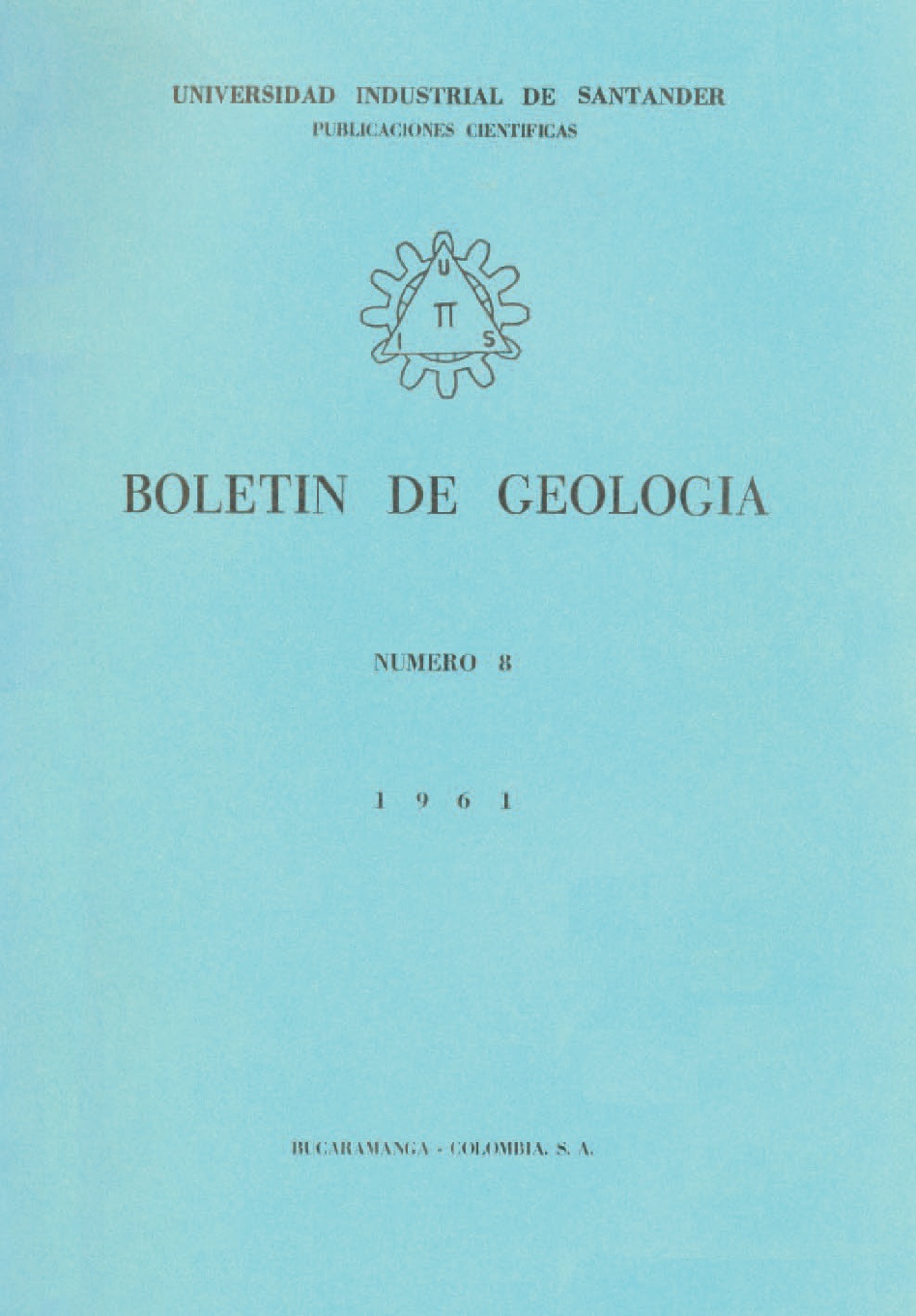Published 1961-12-04
How to Cite
Abstract
The region studied covers the area between the Rio Cucuana in the north, the rio Ortega in the south, the road Guamo-Ortega in the east and the Flautillo Syncline in the m est. An almost complete sequence reaching from the Albian into the Miocene is exposed in this area. The Lower Albian overlaps continental deposits of the Rhetic-Liassic Giron. The sequence up to the Lower Maestrichtian is marine, the Upper Maestrichtian and Tertiary were deposited under fluvial-lacustrine conditions. Two main structural elements are present: the Chicuambe warping in the east with consolidated rigid rocks close to the surface, and the Flautillo syncline in the west with flexible sediments of Cretaceous and early Tertiary age of more than 4000 m thickness. Most of the folds and faults are situated on the flank between these two antagonistic elements and their peculiarities can be explained by the different flexibility of the beds concerned. The Chicuambe upwarping differed from its surroundings by a minor degree of subsidence already during cretaceous time. This caused a considerable variety of facies and thickness. The folds and faults are the result of compressive movements which began in the Senonian (Subhercynic phase) and reached their maximum at the beginning of Middle Eocene (Pyrenaic Phase), Aquitanian (Savic Phase) and Pliocene (Attic Phase). Economically the oil occurrences are of primary importance. The argillaceous beds of the Cenomanian, Turonian and perhaps also the Coniacian are considered as source rocks. The reservoir rocks are the limestone and in a minor degree also the sandstones of the Lower and Middle Albian.
